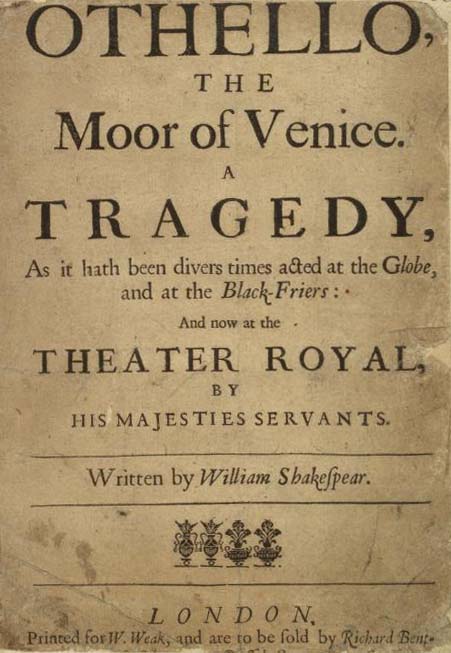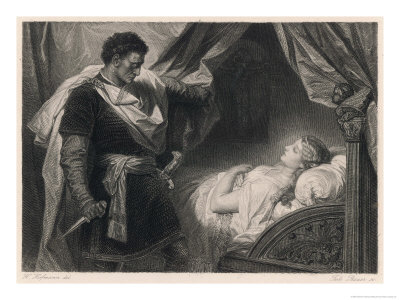
Entire Play - http://shakespeare.mit.edu/romeo_juliet/full.html
Summary
We start off with a little action: a duel between the servants of two enemy families of Verona: the Montagues and the Capulets. Exciting! After the swords are sheathed, Verona's Prince shows up to say that the next person who fights is going to get killed, and he means it this time.Along comes Romeo Montague, mooning over some chick named Rosaline. Meanwhile, Juliet Capulet, age thirteen, has just heard that Verona's most eligible bachelor Paris has his eye on her. They're going to check each other out that night at a masquerade ball at the Capulets' house. (At least it's parentally sanctioned child abuse.) Romeo and his friends have decided to crash the Capulet ball—in costume—because Rosaline is on the guest list.
Things take a turn when Romeo meets Juliet. They fall instantly in love, obviously, but then—gasp!—find out they're from rival families. It's all very dire, but, being two crazy kids in love, they have a secret meeting and decide to get married. Vegas road trip, wooooooo!
Oh wait. No Vegas. Instead, Romeo meets with Friar Laurence to arrange the marriage, and Juliet gets her nurse to be a go-between. The Nurse meets Romeo and his friend Mercutio (who thinks the whole situation is hilarious), and they arrange to get Juliet to Friar Laurence.
Get
ready for some more names: Benvolio, another member of the Montague
posse, runs into Tybalt Capulet, who is angry about the Montagues
crashing his family party the other night. Romeo, freshly married,
strolls into the middle of a tense situation—which gets way tense when
Tybalt kills Mercutio and Romeo promptly kills Tybalt in return. Romeo
jets, but the Prince still shows up to banish him. (Hey, at least he's
not going to be killed.)
Juliet hears from the Nurse that her new
husband has murdered her cousin, which is a major bummer—but not enough
of a bummer to keep her from being super stoked about her wedding
night. The Nurse finds Romeo hiding at Friar Laurence's, and the Friar
hatches a plan. Romeo can spend his wedding night with Juliet, but then
he has to leave town while the Friar finds some way to get the Prince of
Verona to pardon Romeo. Meanwhile, back at the Capulet house, Lord Capulet decides a wedding (to Paris) is just the thing to distract Juliet from her grief. Oops! After Juliet's awesome, romantic wedding night, she finds out that she's supposed to marry Paris in two days. Even her nurse thinks she should marry Paris, since Romeo is "as good as dead" to her.
Juliet runs over to Friar Laurence's, where she has a weird kiss with Paris and then threatens to kill herself. The Friar comes up with a plan that is 100% guaranteed to work and doesn't sound risky At All (not): giving her an herbal concoction that will make her appear to be dead for 42 hours. Yes, exactly 42. So, she runs home, agrees to marry Paris, and takes the poison so she can be taken to the Capulet tomb where Romeo can find her and everyone can live happily ever after.
Sadly, Romeo is a little out of the loop off in Mantua, and the news of Juliet's "death" makes it to Romeo before word of the Friar's plan. He buys some poison so he can go to Juliet's grave and kill himself, which is obviously the mature response. But first, he murders Paris and then spends some time with Juliet's "dead" body.
He drinks the poison and dies just in time for Juliet to wake up and find him dead. Argh! We hate missed connections! The Friar, who apparently shows up at some point, tries to convince Juliet to run away, but she refuses and kills herself with a dagger. Just then, literally everyone shows up to the tomb at the same time and finds the dead lovers. Friar Laurence confesses everything, and the two lords of the rival houses are moved by their dead children's love story and agree to end the feud. Happy ending?
http://www.shmoop.com/romeo-and-juliet/summary.html







